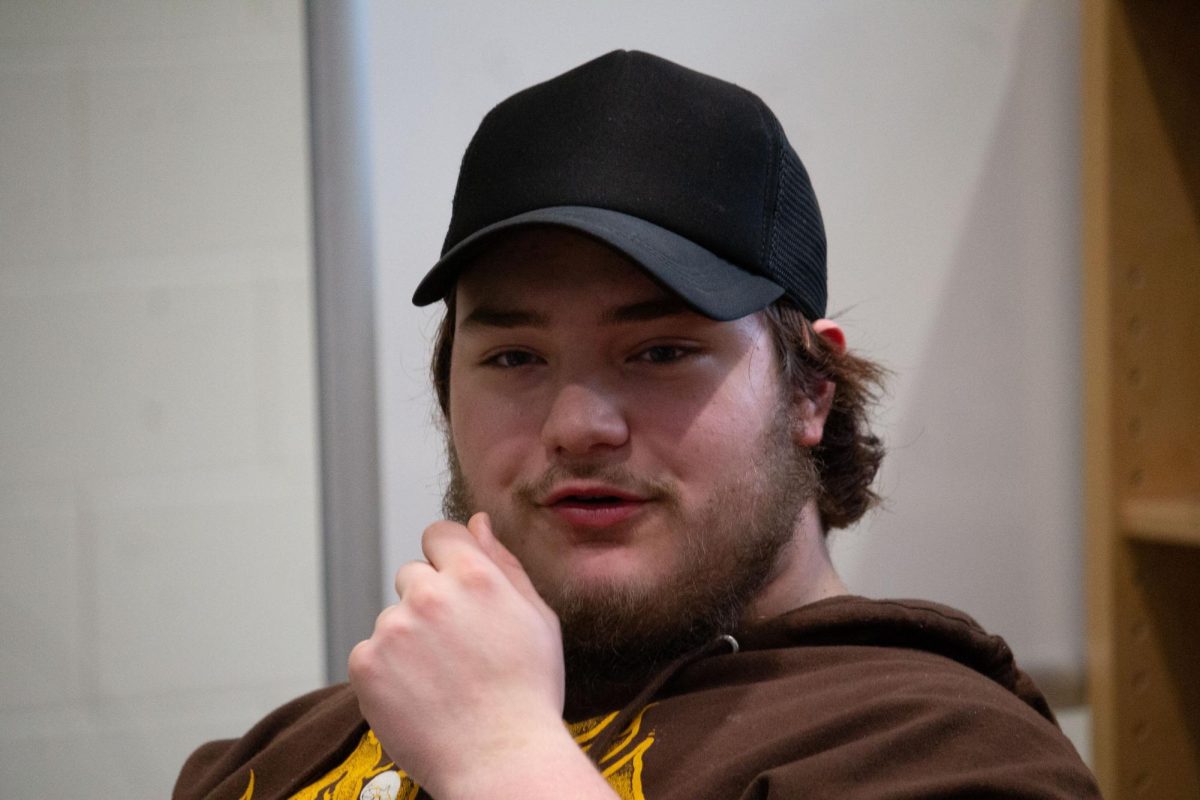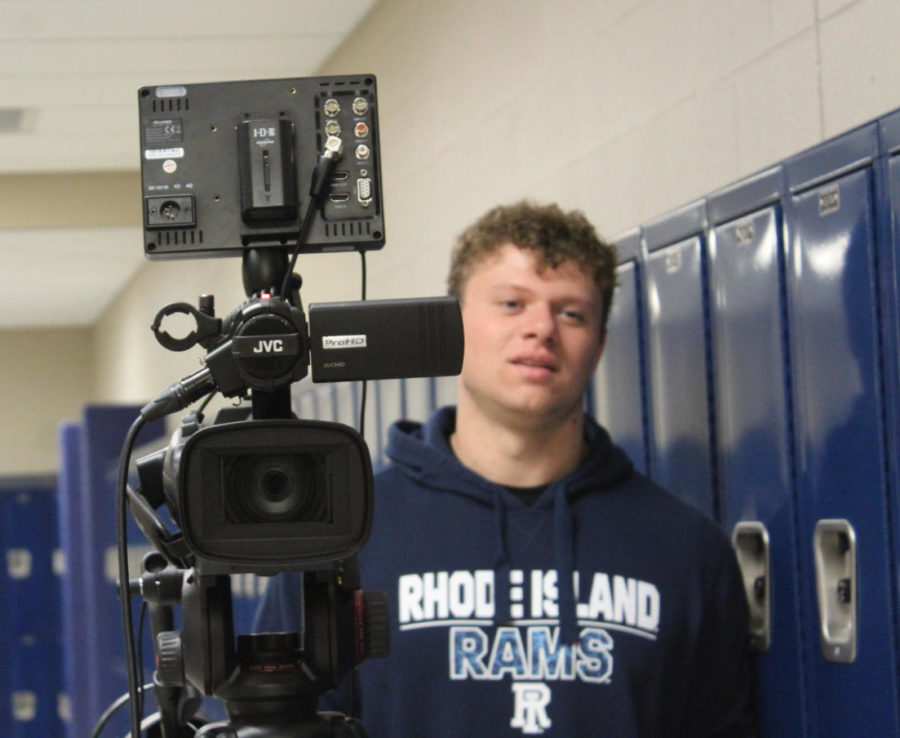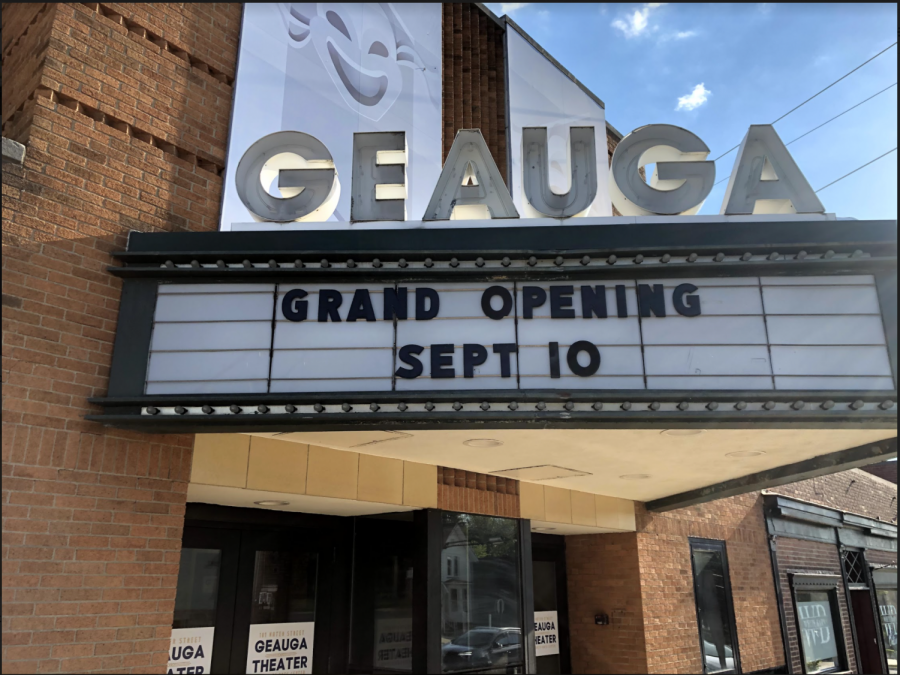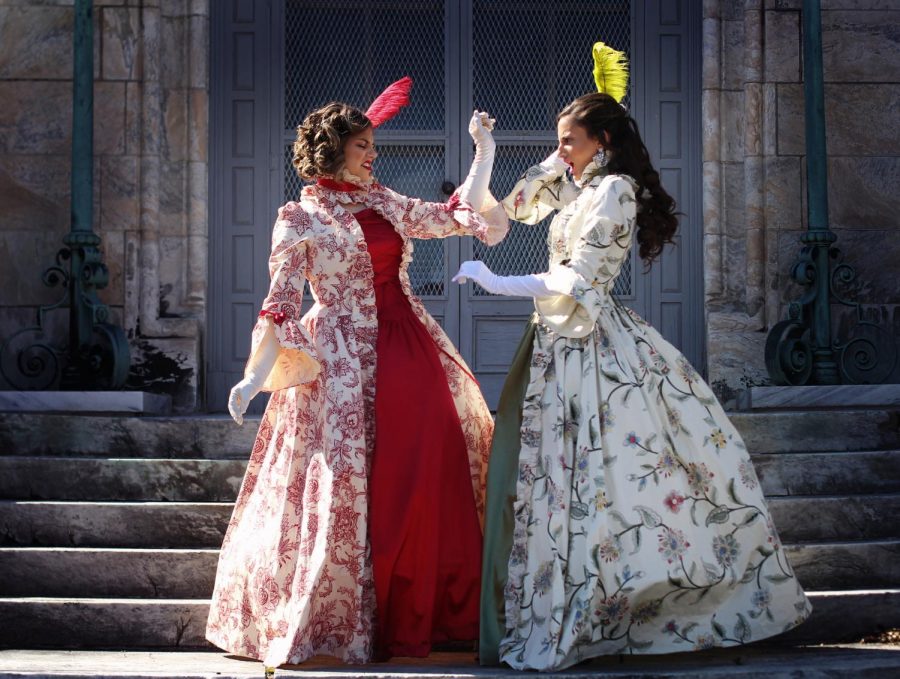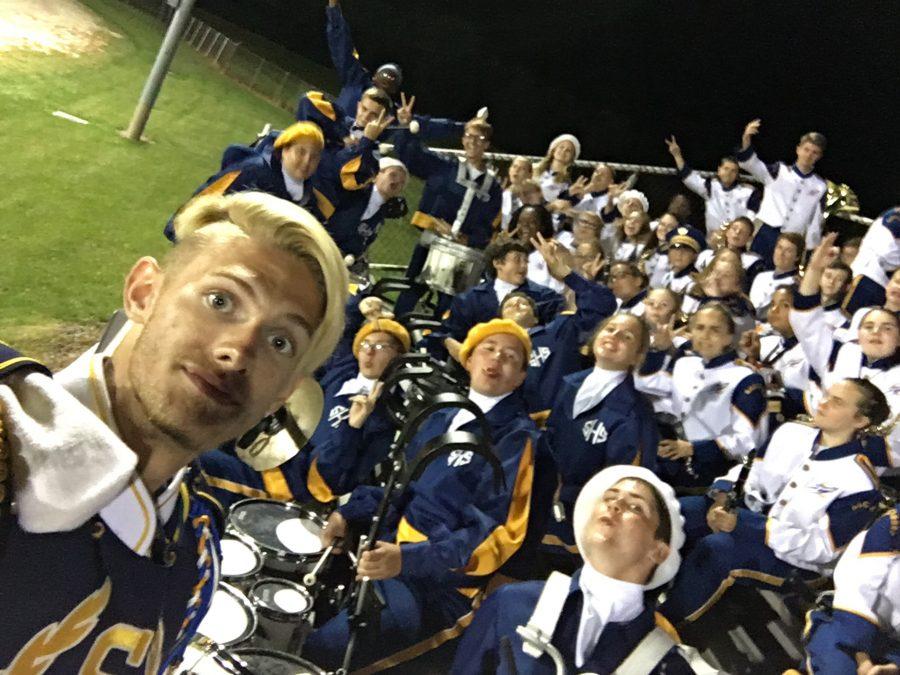The Allegory of the Cave: Three men are chained to a wall, and all they can see are shadows cast by an outside figure. One of the men gets set free and is able to experience the outside world. He goes back to the two chained men and tries to tell the men what he has experienced, yet they don’t believe him. They ask him to name the shadows on the wall, yet he cannot, and is deemed a liar. The chained men believe that their world is the true world, yet the freed man knows the ultimate truth about the real world. Whose definition of the real world is true?
Thought experiments like the one above are proposed at meetings of SHS’ new philosophy club, which was created by sophomore Dylan Bagford. The club meets the first and last Thursday of each month in the media center.
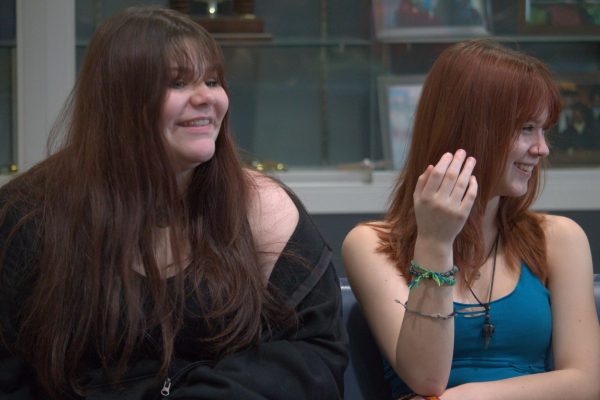
The club is currently trying to make a banner to represent them to try and become a standard club. “I’m hoping if there’s enough draw that this becomes one of our standard clubs at the school,” Dennis said.
Sophomore club member AB Houser said, “I decided to get involved in the philosophy club because I wanted to expand my knowledge in areas not only for regular academics but for something more. In addition to that, I was just curious as to what philosophy actually was and what I could gain from it …I enjoy learning about different subjects of philosophy and learning about what is deemed moral in society and the bending of those rules when applied to philosophy.”
Bagford had initially asked around to see if any staff members would be interested in advising the club. Eventually, he went to counselor Ira Campbell for advice. Campbell told Bagford to ask his history teacher, “which is cool, but I have Rainer, and I don’t want to be called a communist at my own club,” Bagford said.
Then he decided to ask intervention specialist Coular Clendenning who, it turns out, has a minor in philosophy and a strong interest in the subject.
Clendenning proposes the thought experiments each week, challenging participants to try and reason their way out of situations, removing some variables so they only focus on one specific element at a time.
As long as people remain interested in the club, Clendenning said, he hopes to eventually allow it to be student-led. “If we can lay us all a foundation to kind of build, then every year we can revisit some of the topics, [and] I think it could stick around for a while.”
“I’m hoping to teach that to everyone and then, obviously, encouraging everyone to pursue their own adventures in philosophy,” Clendenning said.
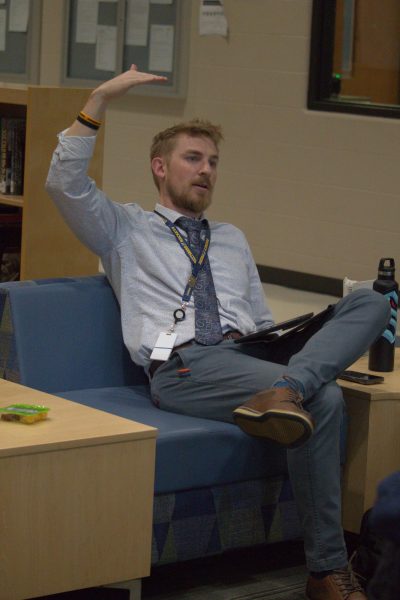
Tutor Bryon Dennis also helps host the philosophy club.
“I’m trying to help Clendenning because I’m hoping that the philosophy club will allow students to think more critically about different topics, and understand how philosophy can shape how they view the world and the things that are happening to them, and maybe give them a different perspective on what’s going on,” Dennis said.
Philosophy club can become an environment where students both speak their minds and learn to listen to one another.
“I think philosophy club should get kids to be able to debate effectively without punching each other,” Dennis added.
One type of philosophy Dennis said he hopes the club will converse about includes educational philosophy. This is the understanding of education, educating people to vote and engage in the political process.
Dennis said he also hopes to talk about famous philosophers like Maxine Greene, who focuses on a curriculum of compassion. Another one he wants to mention is Paulo Freire, who was a curriculum teacher that focused on using education to help oppressed groups. He also hopes the club takes deep dives into the factitious worlds, finding the ultimate truth, which comes from Plato.
Debating topics in philosophy club is also common. Bagford mentioned talking about metaphysics, questioning God’s existence and religion.
Technological philosophy is debating whether technology is good or bad for society and if humans need to keep evolving.
“I want it to last longer than like, when I leave,” Bagford said.


